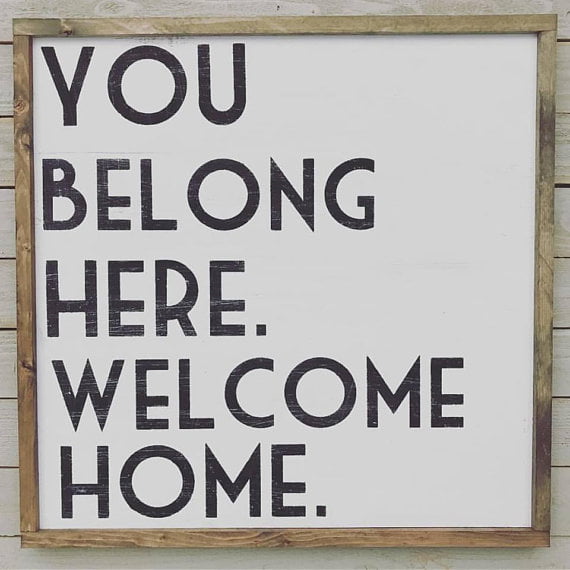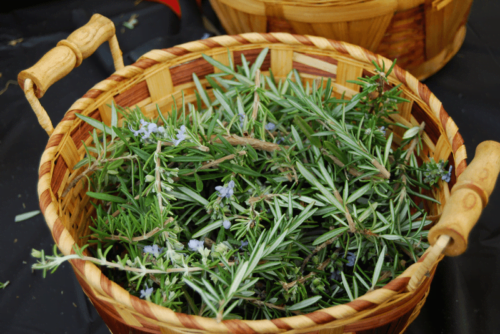 Where do you belong? To whom to you belong? I've been thinking about this a lot this week realizing that . . .
Where do you belong? To whom to you belong? I've been thinking about this a lot this week realizing that . . .
Most of our definitions of what it means to belong comes with constraints like rules and regulations.
If you want to belong to a gym, you’ve got to pay a monthly fee and sign a contract with terms of service.
If you want to belong to a neighborhood association, you’ve got to sign up and pay your dues (and not be late when you pay them!)
If you want to belong to an alumni group of the college you attended, you’ve got to show your alma mater some love from your check book.
Just this week, in fact, I attended a women’s organization meeting in my neighborhood—with the intend of possibly joining the group only to hear after: “Well, you seem nice, but here are 3 more things you need to do before you can consider belonging to us.” (Sigh).
The rules get in the way! Because what we miss is the feeling that we’re seen. We’re heard. And we’re loved. JUST AS WE ARE.
This past Sunday I preached on Jeremiah 31:31-34, a piece of scripture that has a lot to say about belonging. Such was true because the nation of Israel was trying to find its way in post-exile living. They belonged nowhere!
Can you imagine the grief and loss? Their homes were gone. Their livestock was gone. Any authorities present to help them re-build were no longer in charge. It was the definition of living in an "out of sorts" way.
And says this: “I will put my law within them, and I will l write it on their hearts; and I will be their God, and they shall be my people. No longer shall they teach one another, and say to each other, ‘Know the Lord,’ for they shall all know me.”
It was a total 180 degrees shift for this God who'd previously based relationship with his people on laws written in Stone, like the 10 commandments.
God says their relationship would no longer be something they had to figure out. Study well enough. Or honored in a particular way. Nope!
They’d know the LORD because it would be a part of their DNA. The LORD would be closer to them than they were to themselves, even. The Lord would be a key part of their identity.

I couldn't help but draw from the work of Brene Brown at this point in my thinking about belonging.
One of my favorite quotes from her latest book, Braving the Wilderness says this about belonging.
"True belonging doesn’t require you to change who you are; it requires you to be who you are. True belonging is not something you negotiate externally, it’s what you carry in your heart"
Such is exactly what God was trying to communicate to the children of Israel that day through the prophet Jeremiah.
Though their life was in upheaval . . .
Though they have made less than best choices for themselves . . .
Though they may not even know how to find their way back . . .
They belonged.
For though we might wake up on so many days and look around our world and not recognition anything around us that feels familiar, we can be in relationship with a God is about the work of making things new.
We can be in relationship with a God who tells us we don’t have fret so much about acceptance from this authority person in our lives or this organization with prestige.
Because we ALREADY belong.
We can carry ourselves with this knowing. We can always come back to this centering point. God says you belong. You are enough. You are so loved.
It's my hope for you today that you believe what your Creator believes about you.
 Money doesn’t grow on trees. Prepare for retirement. Have your nest egg for security. Always get the most bang for your buck.
Money doesn’t grow on trees. Prepare for retirement. Have your nest egg for security. Always get the most bang for your buck.
Such life management principles are what many of us adhere as if they were Bible verses. And, it’s common sense, right? Life is short after all. We need to make good choices with our money as well as our time. We do things that are good for us and those we love in the end. If not, then why do we bother? Why make stupid decisions?
This past Sunday I preached on the lectionary text of Jeremiah 32 in which was a direct contradiction to our best investment wisdom anyone could offer us.
God tells Jeremiah to continue to follow Jewish customs (of keeping property in a family) and buy a field from his cousin. But, there was one big catch. It was a horrible time! War would soon begin. Exile was on its way. And the people of Judah would be forced out of their town.
The Suzie Ormons of the Jeremiah's day would be shouting, “This is NOT a time to invest in real estate”
YET, God says to Jeremiah (who happens to be in prison at the time): buy the field in your town. This time of hardship will continue, yes. Exile will happen, yes. But one day you'll return to this country and to this land. Keep the faith. Have hope!
I have to say it's one of my most favorite passages in all of the prophetic books. Why? It has a lot to teach us about WHO God is.
Our God makes unimaginable investments!
The object lesson of this passage can be summed up by the Message’s paraphrase Jeremiah 32:15 which says, “The God of Israel says, ‘Life is going to return to normal. Homes and field and vineyards are again going to be bought in this country.’”
See buying this land was a spiritual gift to the community. It was a symbol of hope! For the future of their country, the future of their families and most importantly the future of their relationship with God had nothing to do with what they saw exactly at that moment. A BIGGER story was at play.
Through the hard places of life, God was doing a beautiful work! (They just didn't see it yet).
Yet, if you are like me, such an audacious hope is hard to believe in! It’s hard to realize that God loves us so much to show us hope like this.
It’s hard to believe that such love and faithfulness poured out for us not just on our finest days, but on our darkest, especially our darkest too.
It’s hard to imagine that when all our accolades are stripped away God would still love us the same.
Maybe then, this is why we need symbols of hope so badly.
__________
At the end of the service, I told the congregation about the meaning behind one of my favorite spices in our household: rosemary.
Native to the Mediterranean region, rosemary is a small perennial scrub known from the mint family. Yet, beyond this, it’s an herb that known as a symbol of remembrance.
 Did you know that in ancient times it was known to strengthen memory? Muses in Greek Mythology often appear with rosemary in their hands. In Shakespeare’s Hamlet, Ophelia says: "There's rosemary, that's for remembrance, pray, love, remember." And in modern times, researchers of “brain foods” often have rosemary atop their list of ingredients you can add to a dish if you are having memory problems.
Did you know that in ancient times it was known to strengthen memory? Muses in Greek Mythology often appear with rosemary in their hands. In Shakespeare’s Hamlet, Ophelia says: "There's rosemary, that's for remembrance, pray, love, remember." And in modern times, researchers of “brain foods” often have rosemary atop their list of ingredients you can add to a dish if you are having memory problems.
I brought a basket of rosemary and as we sung the hymn, "Great Is Thy Faithfulness" I went one by one to the folks in the pews and gave them a piece of rosemary. I told them to take it and place it somewhere in their homes where they would see it often and remember. I told them at it could be a symbol for their spiritual memory that:
There’s nothing they could do to separate them from God’s love.
No situation is ever too hopeless to be redeemed by God’s beautiful new story.
Even while we were all sinners, Christ loved so much to die for the human story to have new life.
And, just as Julia of Norwich once said as a statement of trust in God’s investment in her, “All will be well, all matter of things shall be well.”
For God is always investing in us . . .even if we can't see it. Even if we don't understand it or believe it. Let us remember this when the hard patches of life hit us this week and in the weeks to come. If you need to remember, go find yourself some rosemary too.